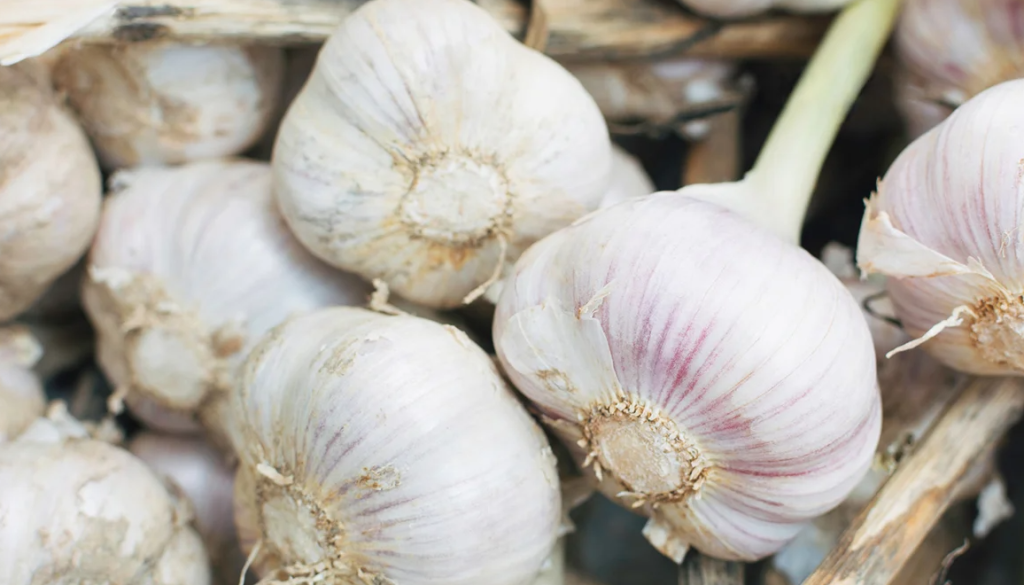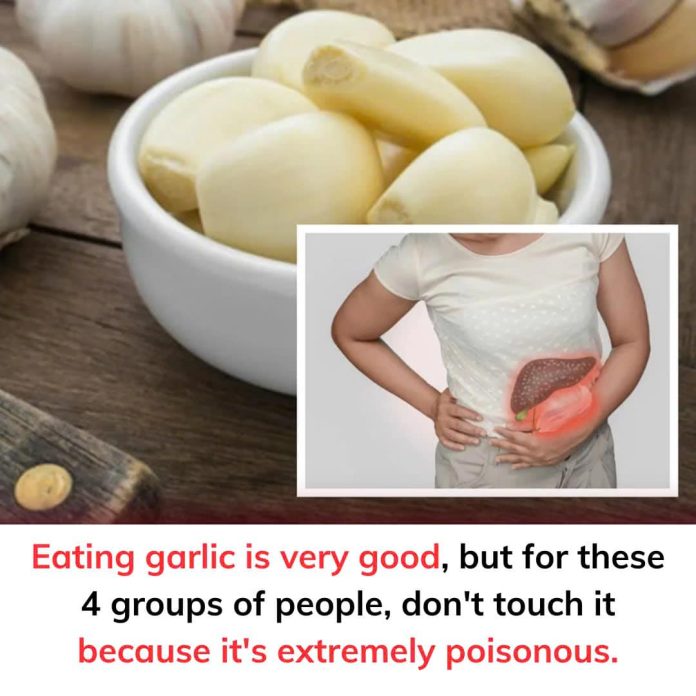Garlic has long been celebrated as a versatile ingredient in the kitchen and a natural remedy with numerous health benefits. It adds a delightful flavor to meals and has been associated with various health-promoting properties, from boosting immunity to combating infections. In some cultures, garlic is even believed to bring good fortune and ward off negative energy. However, while its benefits are well-documented, garlic isn’t suitable for everyone or every situation.
Consuming it without proper awareness can sometimes do more harm than good. Below are key instances where garlic should be avoided.
Garlic and Liver Health
Many people turn to garlic for its potential to protect against infections and improve overall health. However, for those with existing liver conditions, consuming garlic can exacerbate the problem.

- Liver Diseases:
People with liver diseases, especially those with conditions like hepatitis or a “hot liver” (a term used in traditional medicine to describe liver inflammation or overactivity), should avoid garlic. Garlic’s stimulating properties can aggravate liver inflammation and lead to further damage rather than providing relief. While it may seem like a natural solution, overconsumption in these cases can worsen symptoms or impair liver function.
Garlic and Eye Health
There’s a traditional saying in Chinese medicine: “Garlic has a hundred benefits but harms the eyes.” While this might sound exaggerated, there is some truth to the caution.
- Eye Diseases:
Garlic contains compounds that can irritate sensitive mucous membranes, including the conjunctiva of the eyes. For individuals with existing eye conditions or poor eyesight, excessive garlic consumption might worsen discomfort or irritation. While small amounts of garlic are unlikely to cause harm, those dealing with chronic eye issues should moderate their intake.
Garlic During Digestive Issues
Garlic is widely recognized for its antibacterial and antimicrobial properties, which can be beneficial for gut health in normal circumstances. However, it’s not recommended for people dealing with certain digestive disorders.
- Diarrhea and Cholera:
Garlic’s active compound, allicin, can irritate the intestinal walls when consumed in large amounts. For those suffering from diarrhea or cholera, this irritation can lead to complications such as swelling, blood vessel congestion, or worsening symptoms. In such cases, avoiding garlic is essential to prevent further discomfort and inflammation.
Eating Garlic on an Empty Stomach:
While garlic may be a favorite addition to meals, eating it alone, especially on an empty stomach, can have unintended consequences. The strong antibiotic properties of allicin can cause irritation to the stomach lining, potentially leading to ulcers or a burning sensation. To avoid these effects, garlic should always be consumed as part of a balanced meal rather than on its own.

How to Use Garlic Safely
Despite these precautions, garlic remains a beneficial addition to most diets when used appropriately. Here are some tips to maximize its benefits while minimizing potential risks:
- Moderation is Key: Even healthy individuals should avoid consuming excessive amounts of garlic, as too much can lead to side effects like bad breath, stomach upset, or irritation.
- Pair with Other Foods: Consuming garlic alongside other ingredients can help neutralize its intensity and reduce the likelihood of irritation.
- Consult a Professional: If you have a medical condition such as liver disease, digestive disorders, or chronic eye problems, it’s best to consult a healthcare provider before incorporating large amounts of garlic into your diet.
Garlic is undoubtedly a culinary and medicinal powerhouse, but it isn’t a one-size-fits-all remedy. While it offers countless health benefits, understanding the situations where garlic can cause harm is equally important. By consuming it mindfully and in moderation, you can enjoy its flavor and health-boosting properties without putting your well-being at risk. Always consider your individual health conditions and seek advice if you’re unsure whether garlic is right for you.

















